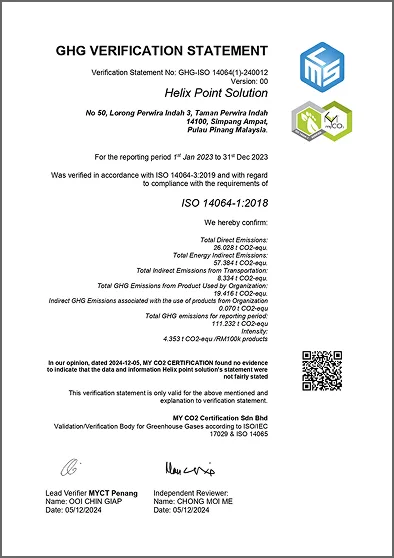Environmental Responsibility
“Pioneering Sustainable Manufacturing: Learn How We’re Reducing Carbon, Empowering People, and Operating Responsibly.”
At HPS, sustainability is an evolving and integral part of our business strategy. Our slogan, “Carbon Footprint Ready – Progressing ESG Goals for a Sustainable Future,” reflects our dedication to taking meaningful steps toward environmental, social, and governance (ESG) excellence. While our sustainability initiatives are in the early stages, we have laid a strong foundation for eco-conscious manufacturing. We aim to reduce carbon emissions, optimize energy efficiency, and minimize waste.
Carbon Emission Reduction
At HPS, we are committed to tracking, managing, and reducing our energy consumption and greenhouse gas (GHG) emissions in alignment with global sustainability standards. Our efforts are driven by a transparent and structured approach to emissions reduction, ensuring compliance with industry best practices.
Through our collaboration with My CO2, a leading organization in analytical testing services, we have successfully completed GHG Inventory Verification (ISO 14064-1:2018) certification. This achievement underscores our commitment to data-driven sustainability, providing deeper insights into our carbon footprint and enabling targeted reduction strategies.


HPS recognizes that sustainability extends beyond our facilities—it begins with our supply chain. By prioritizing local suppliers, we actively reduce transportation distances, lowering fuel consumption and associated emissions. This approach not only benefits the environment but also strengthens regional businesses and enhances supply chain reliability.
Our Approach:
- Reduced Carbon Footprint: By combining shipments and switching from cars to motorbikes for delivery, HPS can significantly reduce their carbon footprint and contribute to a greener future. Motorbikes, with their ability to navigate through traffic more efficiently, can shorten logistics routes, leading to faster deliveries and lower fuel consumption. Larger transport, such as cars or lorries, can be used only when necessary or when the space is fully or nearly occupied. This streamlined approach not only cuts down on greenhouse gas emissions from freight transport but also results in cost savings by minimizing the time and resources required for each trip.
- Economic Resilience: Supporting nearby suppliers in Penang fosters local job growth and community developmentSupporting nearby suppliers in Penang fosters local job growth and community development. At the same time, sourcing locally helps reduce the carbon emissions associated with long-distance transportation. By minimizing the need for cross-border freight and supporting shorter, more efficient supply chains, HPS not only strengthens the local economy but also contributes to environmental sustainability. This approach aligns with our commitment to reducing our carbon footprint while building a resilient and self-sustaining industrial ecosystem in Penang.
- Operational Efficiency: Proximity to local suppliers enables better inventory management, reduced material waste, and closer collaboration on sustainable practices. By operating within a tighter logistics network, HPS minimizes transportation distances, which in turn lowers fuel consumption and carbon emissions. This localized approach enhances agility, supports just-in-time manufacturing, and strengthens our ability to adopt environmentally responsible processes alongside our partners.
Continuous Improvement:
While we prioritize local sourcing where feasible, we acknowledge that certain specialized materials may require broader procurement. As we grow, we remain committed to expanding our network of regional partners and exploring innovative ways to minimize our logistical impact.
This initiative reflects our broader dedication to responsible operations—balancing environmental stewardship with practical business needs while contributing positively to our community.


Energy conservation is a cornerstone of our sustainability strategy. We have upgraded our facilities by replacing traditional fluorescent lighting with energy-efficient LED alternatives, leading to a substantial reduction in electricity consumption and overall carbon emissions. Additionally, we continuously explore energy-saving technologies, optimize machine operations, and implement smart energy management systems to further enhance efficiency. By integrating these initiatives, HPS not only lower our environmental impact but also contribute to long-term cost savings and a more sustainable industrial ecosystem.


At HPS, embracing digital communication and reducing paper dependency are fundamental to our sustainability efforts. By adopting cloud-based document management, e-invoicing, and digital collaboration tools, we significantly reduce paper waste, cut down on electricity usage from printing, and improve operational efficiency. This transition helps conserve natural resources, lower maintenance demands, and reduce our environmental footprint. Furthermore, digital systems support remote and flexible work arrangements, which minimize commuting emissions and contribute to a more agile, cost-effective, and eco-conscious workplace. This shift not only conserves valuable natural resources but also streamlines workflows, reduces costs, and supports a more agile and eco-friendly working environment.





